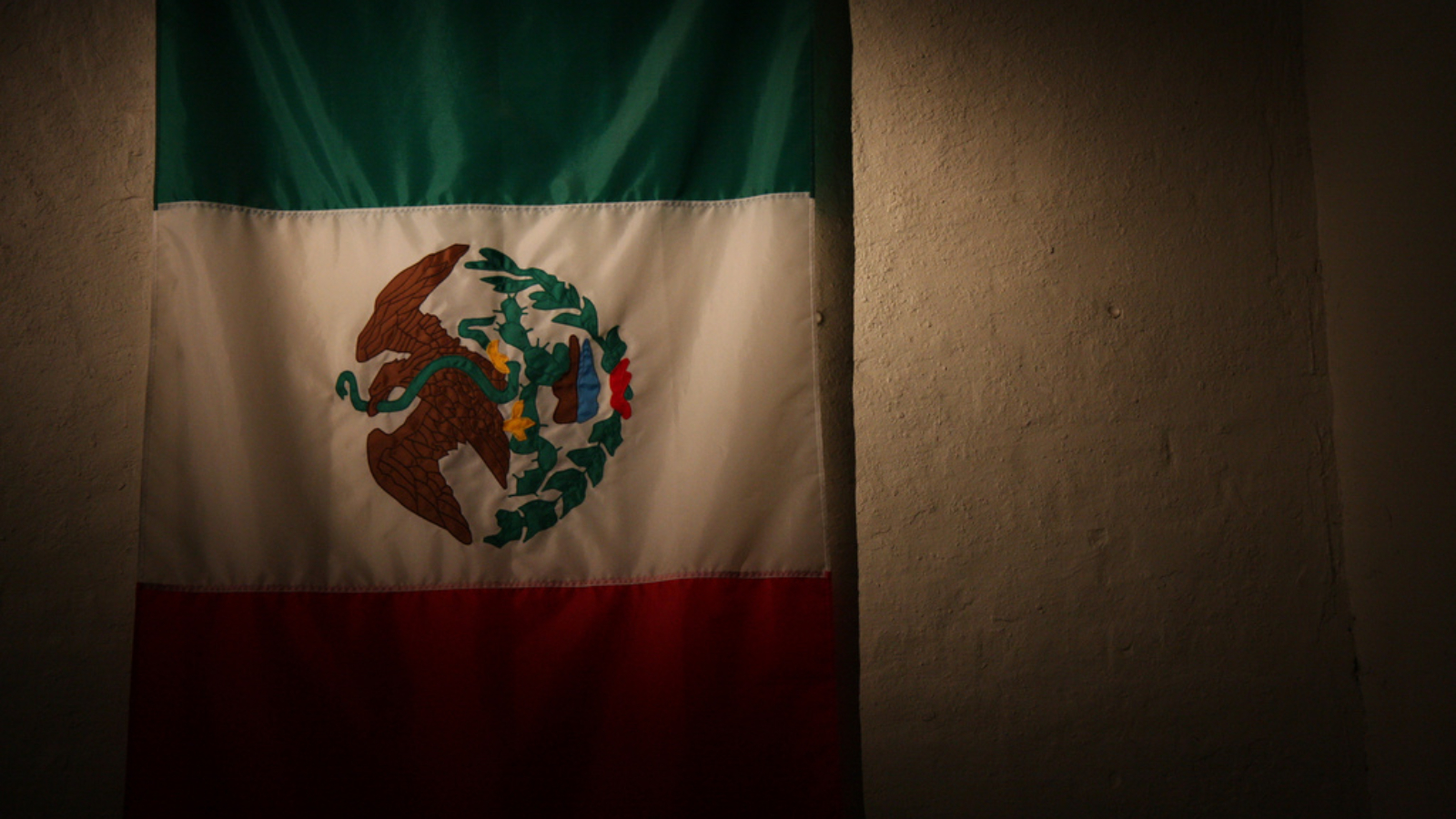Even in prisons, the drug violence in Mexico continues. In a number of incidents, 29 inmates were killed this week in attacks relating to drug gangs, and in two separate incidents 13 police officers died. While the murders of the police officers are believed to be unrelated, all appear to be drug-related.
In one jail, a gang fired assault rifles on its rival, killing 21 prisoners in all. The dead are believed to be a part of Los Zetas, a drug cartel that is challenging the Sinaloa gang for power in the drug market.
The killings this week are a pattern from the end of the last one. Between Thursday and Friday 85 people in all were killed in drug-related violence in Mexico. This has been by far the deadliest time in Mexico since President Felipe Calderón took office. Calderón has taken a firm stance against drug trafficking since coming to power.
On Monday, Calderón released a 5,000 word statement, which many newspapers picked up, reaffirming his belief that the crack down on drugs must continue.
“If we remain with our arms crossed, we will remain in the hands of organized crime, we will always live in fear, our children will not have a future, violence will increase and we’ll lose our freedom,” Mr. Calderón wrote.
Calderón also mentioned that a large part of the problem is the high level of demand for drugs from the United States.
For a detailed examination of the extension of the drug cartels’ power in Mexico, see the reportage by Tomas Kellner and Francesco Pipitone “Inside Mexico’s Drug War” in the current, spring issue of World Policy Journal.
-Seth Walder
 The victory of a Flemish separatist party in Belgium’s Sunday election is raising concern for the country’s future. The New Flemish Alliance (nva) is now the largest party in Belgium’s lower house of parliament, holding 27 out of 150 seats. The Socialists (ps), a French speaking party, came in a close second, securing 26 seats. The Christian Democrats—the Flemish party of Yves Leterme, Belgium’s prime minister of the past two years —won 17 seats.
The victory of a Flemish separatist party in Belgium’s Sunday election is raising concern for the country’s future. The New Flemish Alliance (nva) is now the largest party in Belgium’s lower house of parliament, holding 27 out of 150 seats. The Socialists (ps), a French speaking party, came in a close second, securing 26 seats. The Christian Democrats—the Flemish party of Yves Leterme, Belgium’s prime minister of the past two years —won 17 seats.
The nva’s electoral success is causing a stir because of its separatist platform. Some 60 percent of Belgium’s population lives in Flanders, the Dutch-speaking Northern region of Belgium, while 40 percent lives to the south in French-speaking Wallonia. These regions already have a great deal of autonomy, but tensions over cultural differences and the allocation of public spending have led Flemish parties like the nva to push for a complete break. nva leader Bart de Wever has been an outspoken advocate of splitting Belgium into two states along linguistic and regional lines. However, in his victory speech, he spoke of “trust” and collaboration between the Flemish and Walloons.
The first challenge facing the newly elected parliament will be coalition building, a process Belgians and the international community hope will not take as long as it has in recent history in light of the burning question of what is to be done about Belgium’s considerable debt. –Caroline Soussloff
Canadian Prime Minister Stephen Harper, host of the upcoming G8 and G20 summits, has invited several nations from Africa and the Americas to participate in the G8 talks.
“The G8 has a long tradition of developing credible solutions to global challenges in partnership with Africa and others in the international community,” said the Prime Minister. “At this year’s summit, we will be engaging African leaders as well as key hemispheric partners in order to broaden representation and maximize results on international development and peace and security issues.”
The nations invited are Algeria, Egypt, Ethiopia, Malawi, Nigeria, Senegal, South Africa, Colombia, Jamaica and Haiti. While there is a tradition of inviting “outreach” nations to the G8 summit, Prime Minister Harper’s choices reflect his foreign policy priorities—an initiative on maternal health, accountability for aid, and aiding poorer nations with security problems and the Americas.
It is the first time the three nations from the Americas are invited to the G8. Prime Minister Harper has brought them in to discuss security issues such as terrorism, organized crime and the narcotics trade that plague many South and Central American nations. Colombia in particular was invited just after it concluded a free trade deal with Canada, despite protests of Colombia’s human rights record.
The African nations are expected to focus on the prime minister’s pledge to improve global maternal health and to combat HIV/AIDS, goals that are seen as achievable if the core members of the G8 continue to increase aid and remain committed to global health problems. –Nestor Bailly
